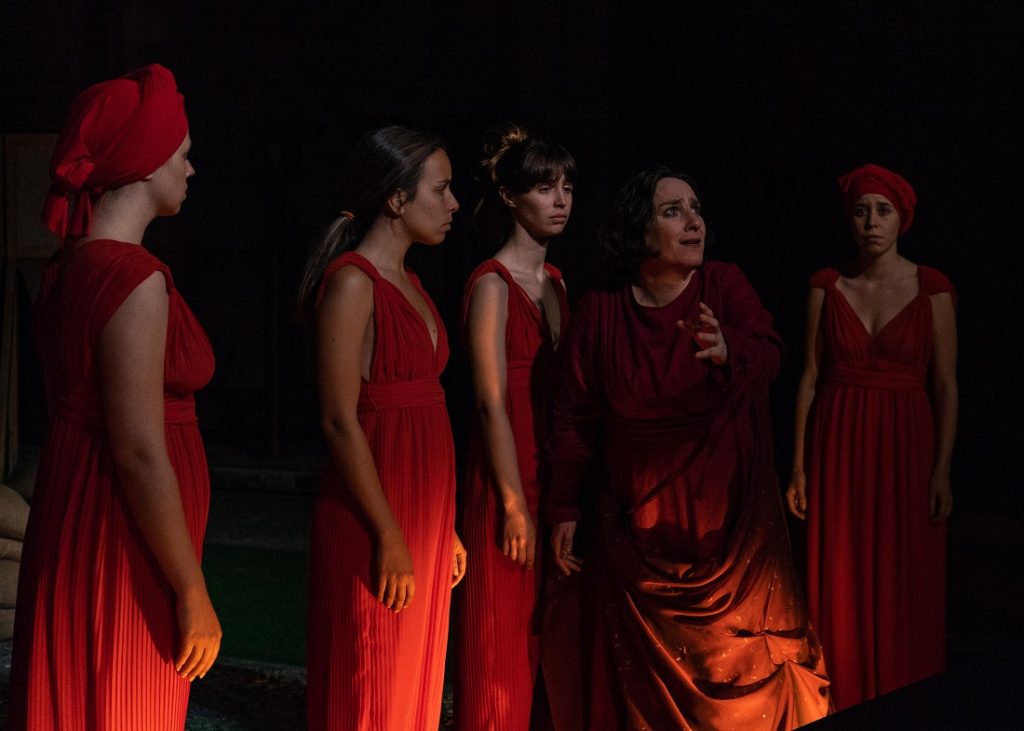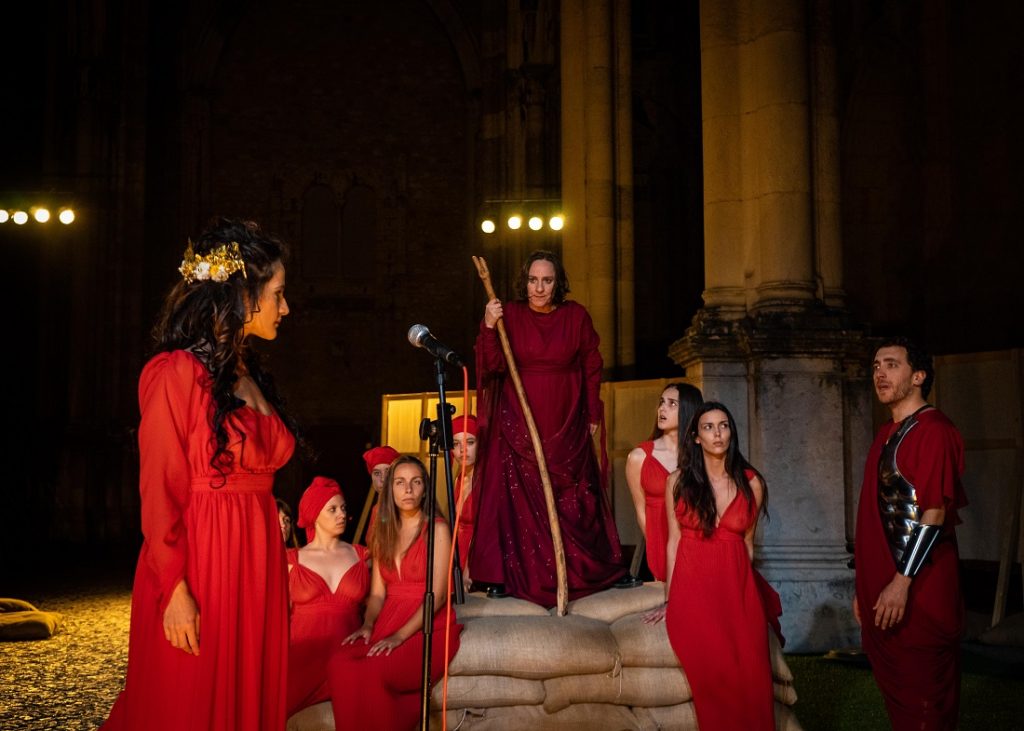theater
The Trojan Tragedy in the Ruins of Carmo
Euripedes's play with english subtitles

The canonical text of the antiwar theater, written in the 5th century B.C. by Euripedes, is the offer of the Teatro do Bairro for the amazing setting in the Carmo Convent Ruins this summer. Based on a new translation by Luísa Costa Gomes, director Antonio Pires delivers the role of Hecuba to the popular portuguese comedian Maria Rueff.
How wild the Greeks were when, driven by pride and greed, they destroyed Troy. The wounds of the long war, which the invader won with a wooden horse, are now in blood in the hearts of Trojan women, to whom Hecuba, “the once celebrated Queen of Troy, ” gives voice: “I have lost everything: my country, my children, my husband.”
Treated like spoils of war, Trojan women await the fate that the gods (and the Greeks) have in store for them: slavery. It is their drama, among the physical and psychological ruins inflicted upon them, that makes “Troianas” a tragedy of women that more than two millennia after Euripides had written it, remains the canonical text of anti-war theater.

“Our decision of adapting this text for the stage was taken about four years ago and it is quite natural that the whole situation that was lived and, unfortunately, persists, having even worsened, has weighed in the choice,” says António Pires, recalling the rise to power of Donald Trump, the wars in Syria and the Maghreb countries and, consequently, the migration crisis that triggered a succession of tragedies.
All this “social and political component” is enclosed in “Troianas,” which, now, through a new translation by Luísa Costa Gomes (made from George Theodoridis’s English translation and later revised with Tim Eckert from the Greek), has been made into a “simpler, more straightforward classical piece.” This is, by the way, one of the virtues that Pires emphasizes in this version, which allows the public to “fully visualize each word and very easily grasp the ideas of the author.” Although, as Luísa Costa Gomes points out in the information sheet, Euripides was “an author very little given to ornaments. Nor would such decorations be desired on such painful subjects.”

In a play in which the main protagonists are women, António Pires wanted to reunite some of the actresses with whom he works regularly and greatly admires. In addition to Rueff, the director gave Alexandra Sargento the role of Cassandra, and Sandra Santos the role of Andromache. The young actress Vera Mora, who works for the first time with Pires, plays the beautiful and treacherous Helen of Sparta.
As for the choice of Maria Rueff for the role of Hecuba, the director highlights “the unparalleled ability of comedians to perform tragedy. And Maria has it all: she has the strength, the nerve and the energy that drives the character to always be on edge.”
On stage until August 17, ” Troianas” also has interpretations from João Barbosa, Hugo Mestre Amaro, Francisco Vistas and finalist students of the representation course of the ACT-Escola de Atores.